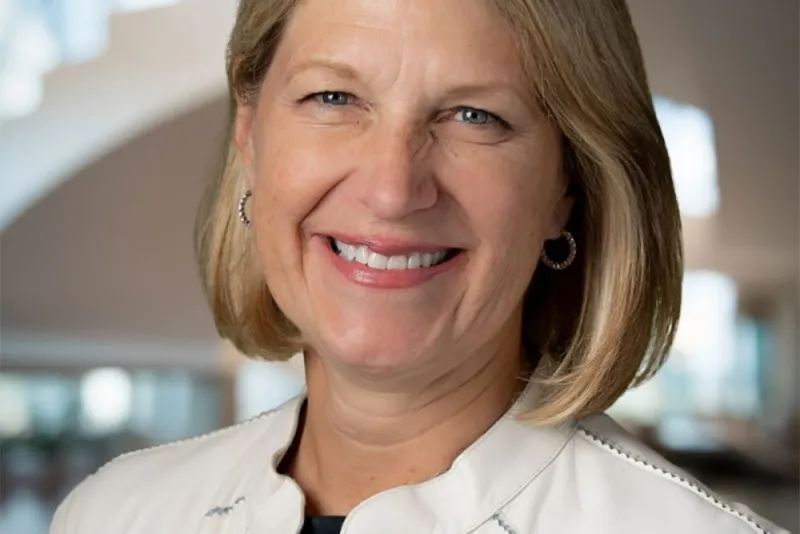When Marcia Page co-founded Värde Partners in 1993, she was one of the few female asset management owners. Thirty years later, not much has changed for women and minority groups in the industry — and Page has decided to do something about it.
Page, who is now executive chair of the $14 billion-in-assets Värde, has launched MPowered Capital to invest in women and other underrepresented talent in alternative investments. At the same time, the firm has made a direct investment alongside and provided working capital to L2 Point, a female-founded firm that makes structured equity investments in growth companies.
Page is serving as CEO of MPowered and has spent much of the last two years putting together the leadership team. She has tapped Chrissie Chen Pariso, formerly a senior portfolio manager of private equity at Exelon Corporation and head of Exelon’s women and minority manager program, and Yibai Haney, who has a decade of experience as a structured and growth equity investor, most recently at Virgo Investment Group. The three are contributing their own capital, with Page alone putting in $75 million.
“We now have a one-of-a-kind firm: one that will be very much defined by the quality of our investment acumen, by the fact that we’ve been in and around the DEI space in financial services for quite some time,” Page told Institutional Investor. “Our industry connections are putting us in a unique position from a sourcing perspective.”
Most importantly, Page emphasized that the firm is looking to generate a source of alpha that few investors can get access to on their own and that is available because these firms are undercapitalized to begin with. According to the Knight Foundation, diverse managers oversee only 1.3 percent of the $69 trillion in institutional assets under management, even though they are overrepresented in the top quartile of performance.
In part, MPowered in part grew out of some demoralizing results Page received in 2016 when she moved from being co-CEO and co-CIO of Värde to executive chair in 2016. That year the firm found in surveys that women were far less engaged than men across all geographies and that women, particularly investment professionals, represented about 9 percent of the firm — no better than the industry in general. What’s more, women were turning over at twice the rate of men.
“My journey was a kick in the gut, to be completely honest,” she said. “My insight was that unconscious bias is incredibly powerful.” The firm made a series of changes, including dropping women’s self-ratings as part of the promotion process. “You actually level the playing field because women self-rate lower than men,” Page said.
While Värde’s numbers improved — 22 percent of investment professionals are now women — Page wanted to do something more.
She started researching whether there was an investment opportunity. “Is there capital dislocation? Yes, diverse talent is materially under-capitalized relative to their less diverse peers. Is there alpha to be had? Yes,” she said.
MPowered believes that the addressable universe of diverse alternatives firms is more than 800. But these firms are more emergent in nature, even if they perform well. (In a study of deals, business school HEC Paris found that relative to male-only deal teams, gender-diverse deal teams in private equity generated internal rates of return that are 12 percent higher and reduced average capital loss ratios by 8 to 12 percent.)
There are also a number of structural issues in the industry that have made it even harder for diverse managers over time, not easier. For one, the bulk of capital increasingly flows to larger firms as investors consolidate their relationships, Page said.
Another structural block falls under the heading of a flexible mandate. “One of the challenges has been that if you are trying to put this into a box that fits a certain number of years of track record, a certain amount of AUM… then you’ll miss a big opportunity,” she said.
For example, MPowered has found a gap in what it calls structured transactions, where diverse firms have a hard time coming up with working capital. That’s because women and minorities might not have the same access to personal capital, in part because of the wage gap with peers and slower promotions, and they often lack deep professional networks.
To do due diligence on diverse managers, when they don’t have a track record, Page says the firm relies on multiple sources and references, figuring out who really led certain deals, for instance.
In one pre-fund situation, MPowered had the manager do a direct deal to see “live” how they handled the underwriting.
“Our willingness to take on some of the complexity is part of the differentiation we believe we’re bringing to this market,” she said.
Over the past year, before its official launch, Page, Pariso, and Haney have personally invested in 11 deals worth $40 million. The firm will invest in fund investments, structured transactions, and direct or co-investments. MPowered, which will operate as an independently-managed investment firm, is partnering with Värde for some business and operational capabilities.







